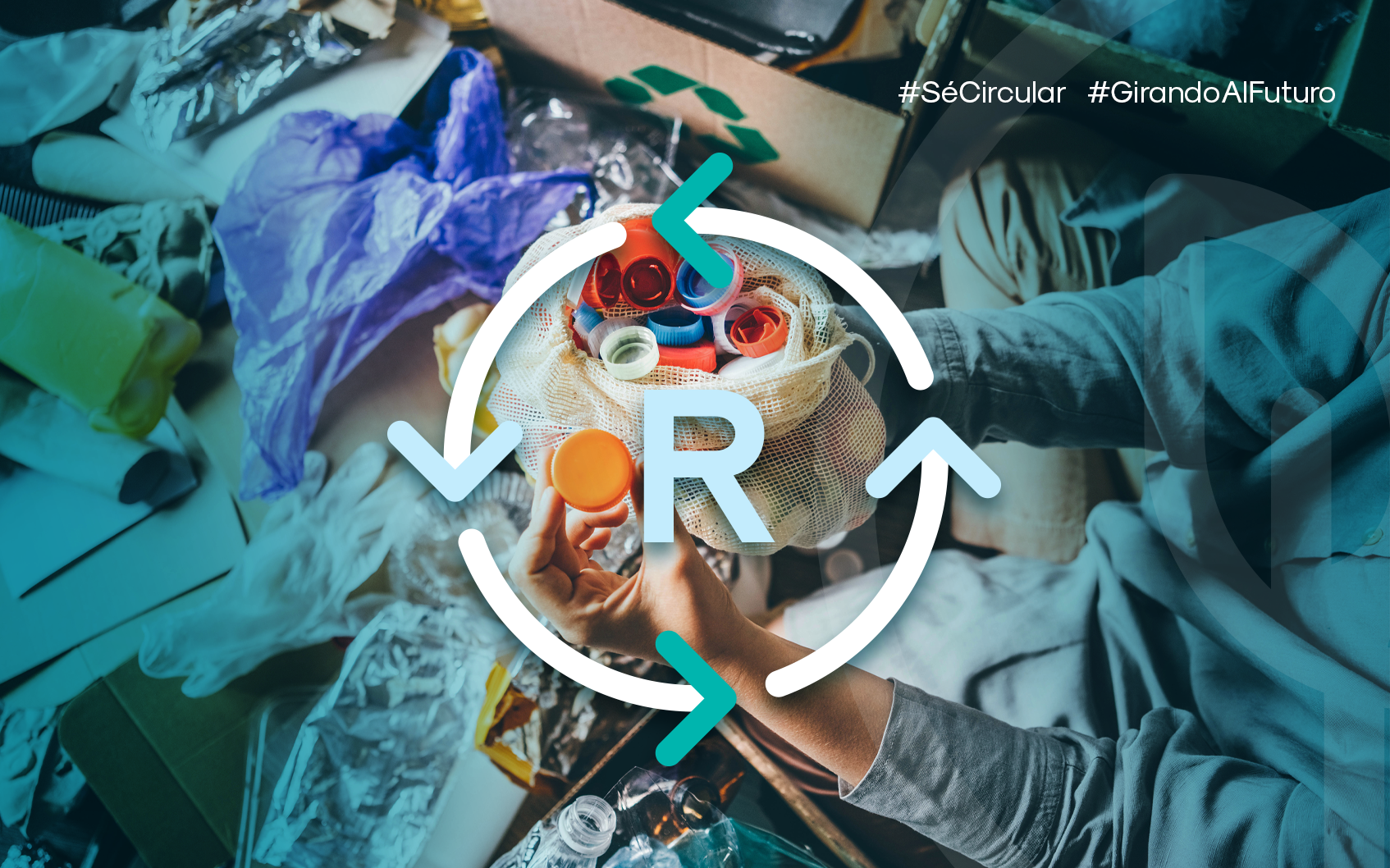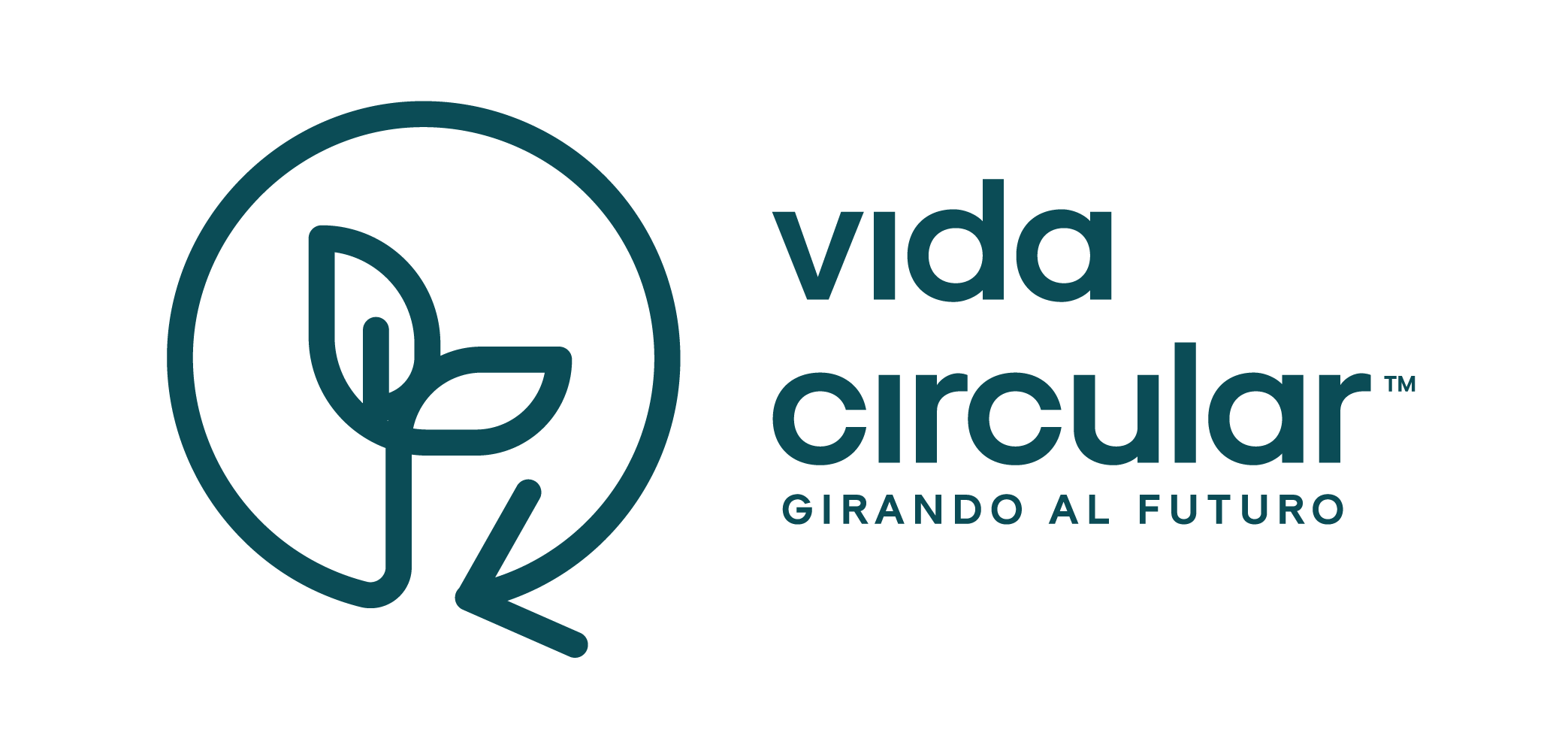
Discover the 4Rs of environmental care
The 4Rs are more than just letters, they represent a powerful call to action for all of us who care about the future of our planet. The 4Rs are not just environmental principles, they are fundamental steps toward a lifestyle that respects and protects our natural resources.
In a world where overconsumption and waste continue to threaten the health of our planet, adopting the 4Rs can make a significant difference because they help us minimize waste, conserve energy and natural resources and reduce our carbon footprint. They also promote the circular economy, where products and materials are designed to retain their usefulness and value for as long as possible, so that they can then be reintroduced into the production chain, reducing the need to extract and consume raw materials from the earth.
In this blog, we will not only explore what each of these 4Rs means, we will also offer practical and accessible tips so that you can integrate these practices into your daily life easily and effectively.

What do the 4Rs stand for?
The 4Rs are a set of principles aimed at promoting responsible consumption practices and environmental sustainability, each "R" representing a specific action we can take to minimize our impact on the environment and help heal our planet. Let's see what they refer to:
- Reduce
This principle focuses on reducing the amount of resources we consume. Reducing implies thinking critically about our needs and opting for products that have a longer useful life, consume fewer resources and generate less waste. It also includes reducing energy and water consumption.
Reducing simply means being more conscious about using less. You can start with small things like turning off lights when not in use or opting for products with less packaging. Every small act of reduction helps reduce the amount of waste we generate and the resources we consume.
- Reuse
Before you throw something away, think about whether this object can have a second life. Glass jars can become containers for spices or even pots for small plants. When you no longer need an item of clothing that is in good condition, find someone to give it to. Reusing not only helps you save money, it also reduces the need for industry to produce new products to meet consumer demand, saving natural resources and energy. In other words, reusing means finding new ways to use objects instead of throwing them away after the first use. Quite simply, reuse helps extend the useful life of products and reduces the need to produce new goods.
- Recycle
Recycling is crucial for the environment, as it consists of reprocessing used materials to create new products. This process helps conserve natural resources, reduces the amount of waste that ends up in landfills and, therefore, helps reduce environmental pollution. Common materials for recycling include paper, cardboard, glass, plastic and metals. Plus, this is where a large part of your contribution can come in. Be sure to separate your waste into organic and inorganic. Properly separating your waste allows materials to be transformed into new products, reducing pressure on natural resources.
- Retrieve
Recovering energy from waste that cannot be recycled turns discarded materials into a valuable energy source. For example, some facilities convert organic waste into biogas, which can be used to generate electricity or heat. Supporting and promoting policies that encourage the construction of recovery infrastructure in your community can increase resource efficiency and reduce dependence on fossil fuels.
Implementing the 4Rs in our daily lives and production and consumption systems can mean a significant shift towards a cleaner, more sustainable future. Reducing pressure on natural resources, reducing pollution and encouraging more sustainable practices are essential to preserving the environment and delivering a green and pure planet for future generations.
How to implement the 4Rs in my daily life?
Implementing the 4Rs in your daily life is an excellent and simple way to contribute to environmental sustainability. Here are some practical and accessible ideas for incorporating these principles into your daily activities:
Reduce
- Smart shoppingBefore buying something new, think about whether you really need it. Opt for quality products that will last longer.
- Save energy and water:Turn off lights when you don't need them, unplug electronics you're not using, use energy-efficient appliances, turn off the faucet when soaping while bathing, use buckets instead of hoses, and repair water leaks to reduce consumption.
- DigitizeReduce the use of paper by digitizing documents, subscribing to electronic invoices and reading online news instead of printed magazines or newspapers.
Reuse
- Donate or sell what you don't needInstead of throwing away items you no longer use, donate them to someone who can give them a second life or sell them at second-hand markets.
- Creativity in the homeUse containers, glass jars, or old clothes in creative ways. For example, turn old t-shirts into shopping bags or cleaning rags.
- Repair and restoreBefore discarding something broken, consider whether it can be repaired or restored.
Recycle
- Organize your wasteSeparate your waste at home into organic and inorganic.
- EducationLearn and educate your family about what materials are recyclable in your community and how they should be prepared (clean and dry).
- Participate in local programsGet involved in your community's recycling programs and attend recycling events.
Retrieve
- CompostIf you have space, consider composting organic waste such as fruit and vegetable scraps, which reduces waste and provides compost for plants.
- Use recycled productsOpt for products made from recycled materials, which helps to complete the life cycle of the material.
- Support renewable energyIf possible, switch to energy suppliers that use renewable sources or participate in programs that promote energy recovery.
Implementing these practices not only helps the environment, it can also improve your quality of life and reduce your long-term expenses. By adopting the 4Rs in your daily routine, you make a significant contribution to preserving natural resources and fostering a more sustainable future for all.

Concluding on the 4Rs
Reduce, reuse, recycle and recover are much more than waste management strategies; they represent a comprehensive approach to achieving environmental sustainability in our daily lives. These principles not only seek to minimize the negative impact our activities have on the planet, they also push us toward a way of living that harmonizes with the Earth's ecological limits. By adopting these approaches, we commit to making more conscious and efficient use of our resources, which in turn fosters a circular economy that reduces the need for new resource extraction and minimizes our ecological footprint.
Implementing the 4Rs in our lives is not only an individual action, but also a call for collective action. We need government policies that encourage sustainable design, support recycling and recovery infrastructures, companies that design products with reuse and recycling in mind, and communities that encourage conscious and responsible consumption, reuse and recycling of the products they consume. Every step we take toward reducing waste, maximizing reuse and effectively recycling materials contributes to a more sustainable system that protects the environment for present and future generations.
Moreover, these practices have the potential to boost the economy by creating sustainable jobs, generating economic savings and promoting innovation in green technologies. In a world facing unprecedented challenges related to climate change and environmental degradation, the 4Rs offer an effective path to lasting solutions.
Committing to the 4Rs means more than simply managing waste better; it means redefining our values and behaviors toward an ethic of care, respect and environmental justice. This ongoing commitment to environmental sustainability is essential to building a society that not only survives, but thrives by maintaining a balance between our needs and those of the planet we inhabit. By integrating these principles into every aspect of our lives, we are charting the path to a more promising and sustainable future. Join the change by adopting the 4Rs.




